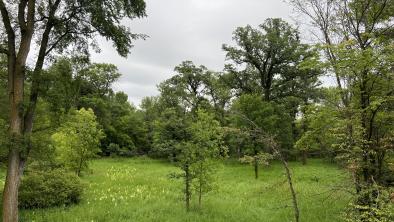East side preservation inspiring
Winnipeg Free Press

Manitobans have the rare opportunity to make a profoundly positive choice that will resonate across Canada and around the world by showing their support of the UNESCO World Heritage bid on the east side of Lake Winnipeg.
Pimachiowin Aki Inc. and the Manitoba government are working to achieve UNESCO World Heritage designation for the Pimachiowin Aki site -- an area of 40,000 square kilometers of boreal forest.
This collaborative effort between First Nations and the provincial governments of Manitoba and Ontario is both exemplary and inspiring.
The boreal forest is among the largest intact forest ecosystems left on earth, and nearly one-third of the total area falls within Canada's borders.
Yet less than eight per cent of Canada's boreal ecosystem is currently protected from industrial development.
It's in the best interests of Manitobans -- and all Canadians -- to ensure a significant portion of this vast ecosystem remains intact. Along with the Amazon rainforest in the southern hemisphere, the boreal forest acts as the "lungs of the Earth," providing many of the ecological services that keep our planet, and in turn us, healthy. Its forests store carbon dioxide, preventing the release of heat-trapping gases into the atmosphere that cause global warming, while its wetlands filter and clean millions of gallons of water each and every day. It is home to thousands of species of wildlife, including the endangered woodland caribou, whose existence is threatened by industrial development.
But how much are these ecological services worth, when they're measured against the hard costs of saying "no" to development?
This is a question that Manitobans need to consider when evaluating the two prospective routes for the Bipole III hydro transmission corridor.
The western route avoids cutting into the intact ecosystem of the boreal forest and exposing the land to ongoing threats from industrial activity. It also avoids crossing the First Nations traditional lands recently recognized in provincial law and the significant potential liabilities that could arise from legal battles, which would stall future development indefinitely.
The west route would run mostly through a developed region, lands that are being used for agriculture, residential communities and industry. The west route comes with a higher price tag, which has led opponents to argue that the cheaper east route through the proposed UNESCO site should be pursued. Manitoba Hydro estimates the additional cost of the west route will be $410 million, much less than critics claim.
Opponents of the west route choose not to consider the economic opportunities that will come with a UNESCO designation, let alone the cultural and spiritual value or the ecological services provided by the boreal ecosystem.
A study conducted by the Winnipeg-based International Institute for Sustainable Development pegged the value of these ecological services, which include fishing, water purification and carbon sequestration, at up to $130 million per year. Similarly, the carbon stored within the forests and peatlands of the area was estimated to be worth at least $2.7 billion to $17.5 billion -- an economic benefit exponentially greater than even the highest assumed cost.
Manitoba is one of only four provinces lacking a World Heritage Site. A designation on the east side of Lake Winnipeg would direct a global spotlight on Manitoba's ecological and cultural heritage. With only 15 World Heritage Sites, Canada lags well behind other nations including the United States, Mexico, China, Italy and Brazil. It's time for that to change.
The Pimachiowin Aki Corporation and Manitoba government have demonstrated great vision in choosing to think beyond the next fiscal quarter and the next year, to the future of our children and grandchildren. Manitobans have a unique opportunity to preserve an irreplaceable source of life and inspiration, to maintain its ecological integrity, and to invest in fresh air, clean water, species diversity and climate stability for the future. We offer our sincere congratulations as well as our firm support.
Rick Smith is the executive director of Environmental Defence. Marlo Raynolds is executive director of the Pembina Institute.
Republished from the Winnipeg Free Press print edition October 27, 2010 A15


